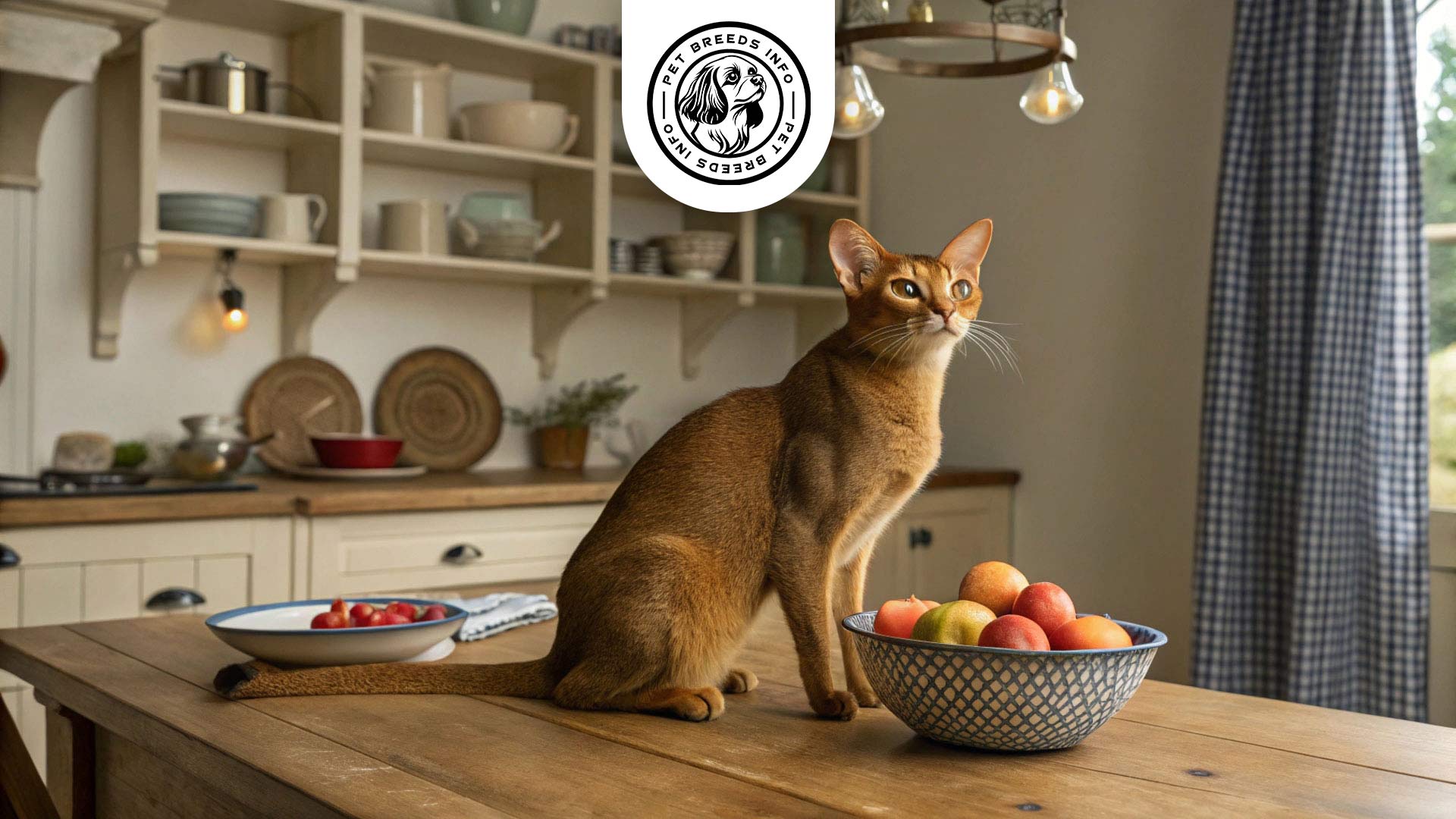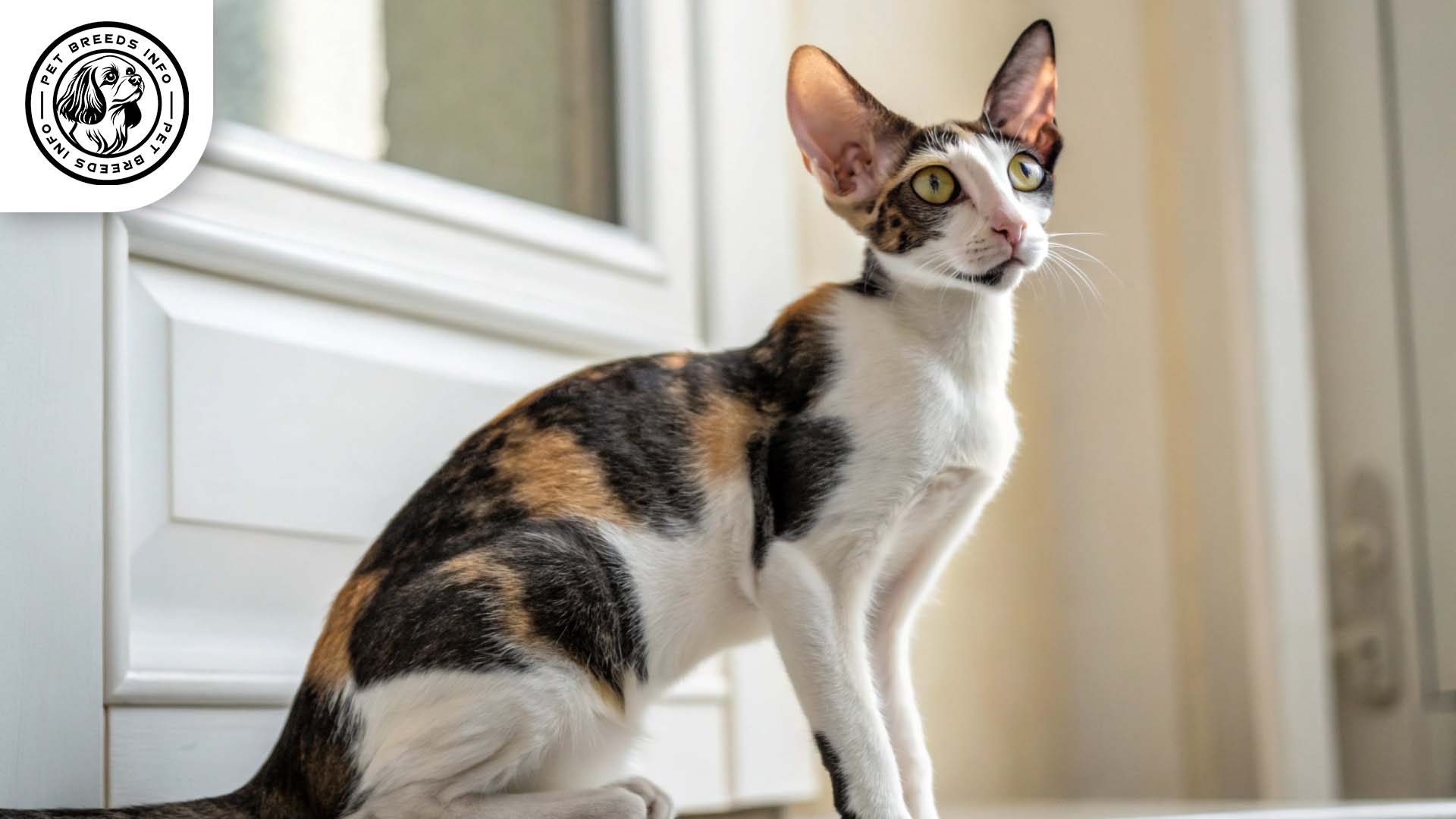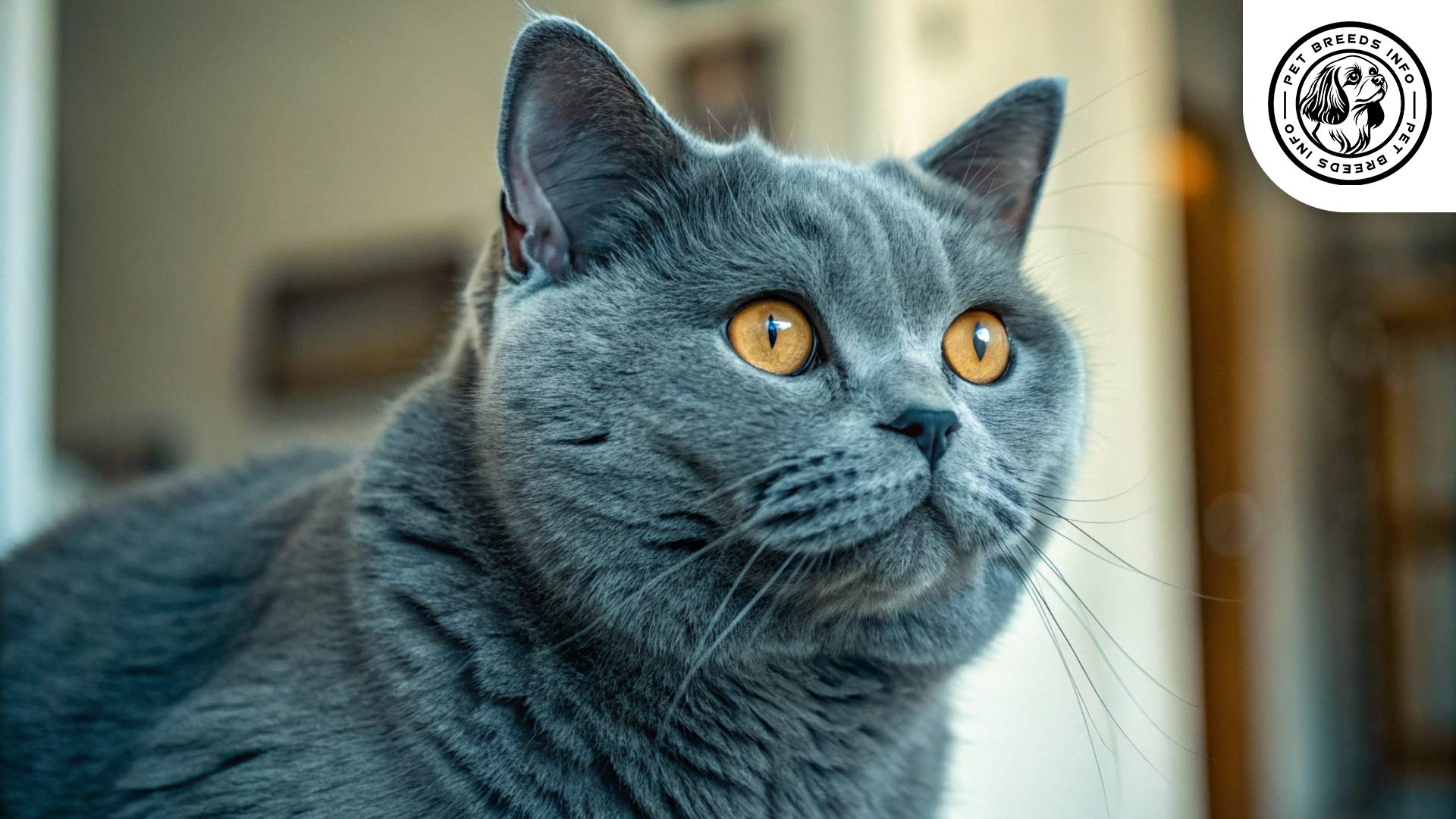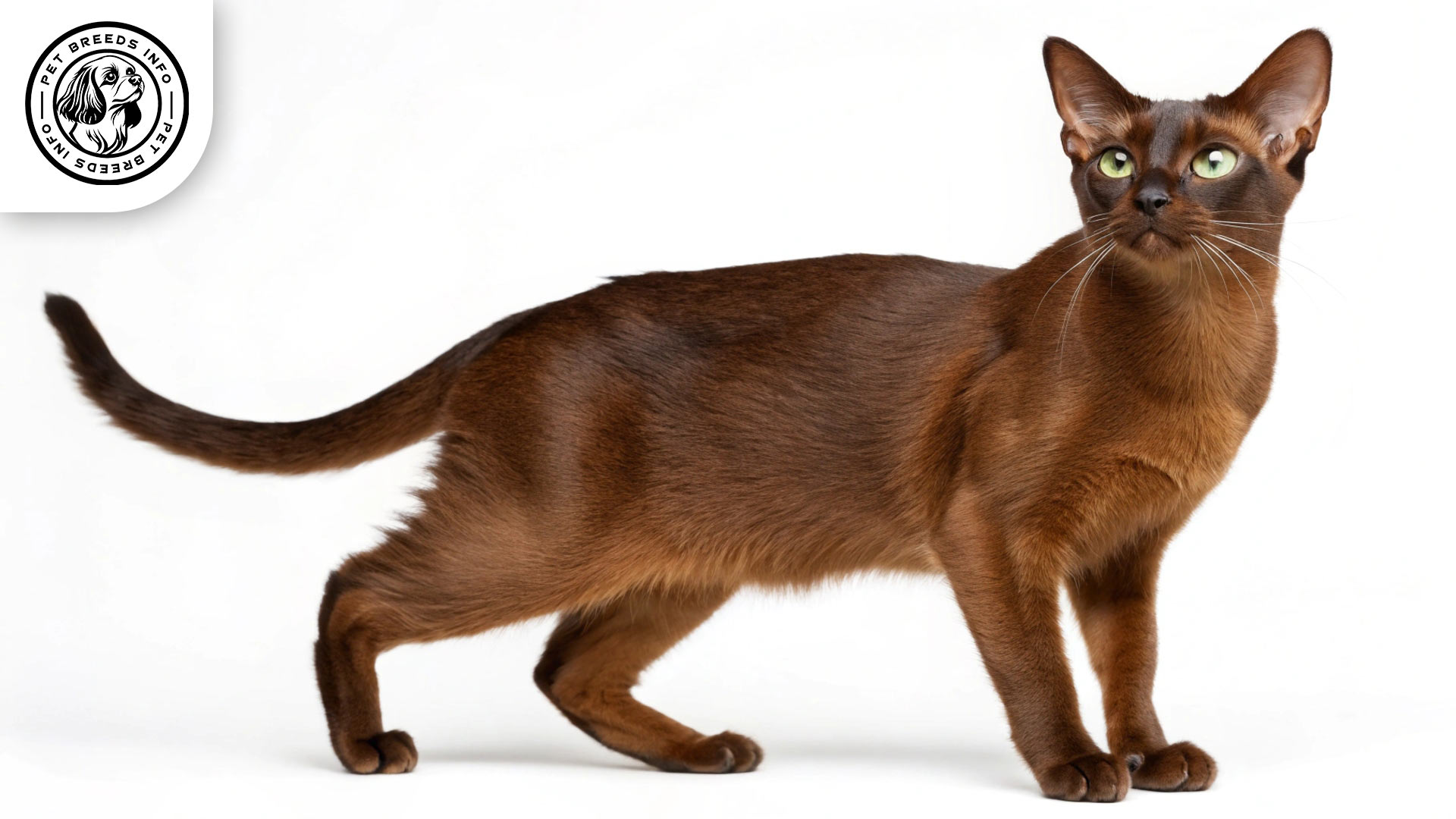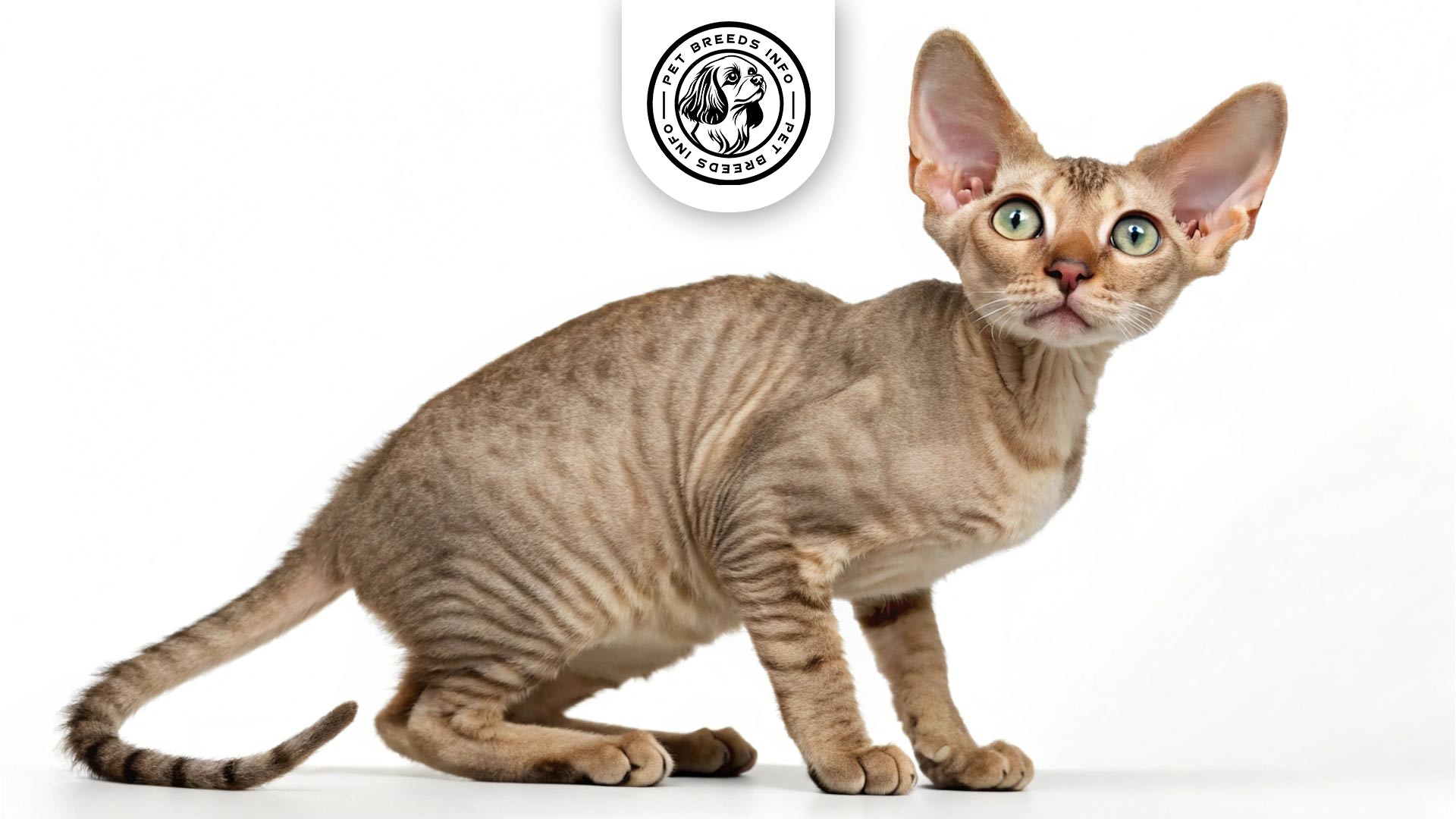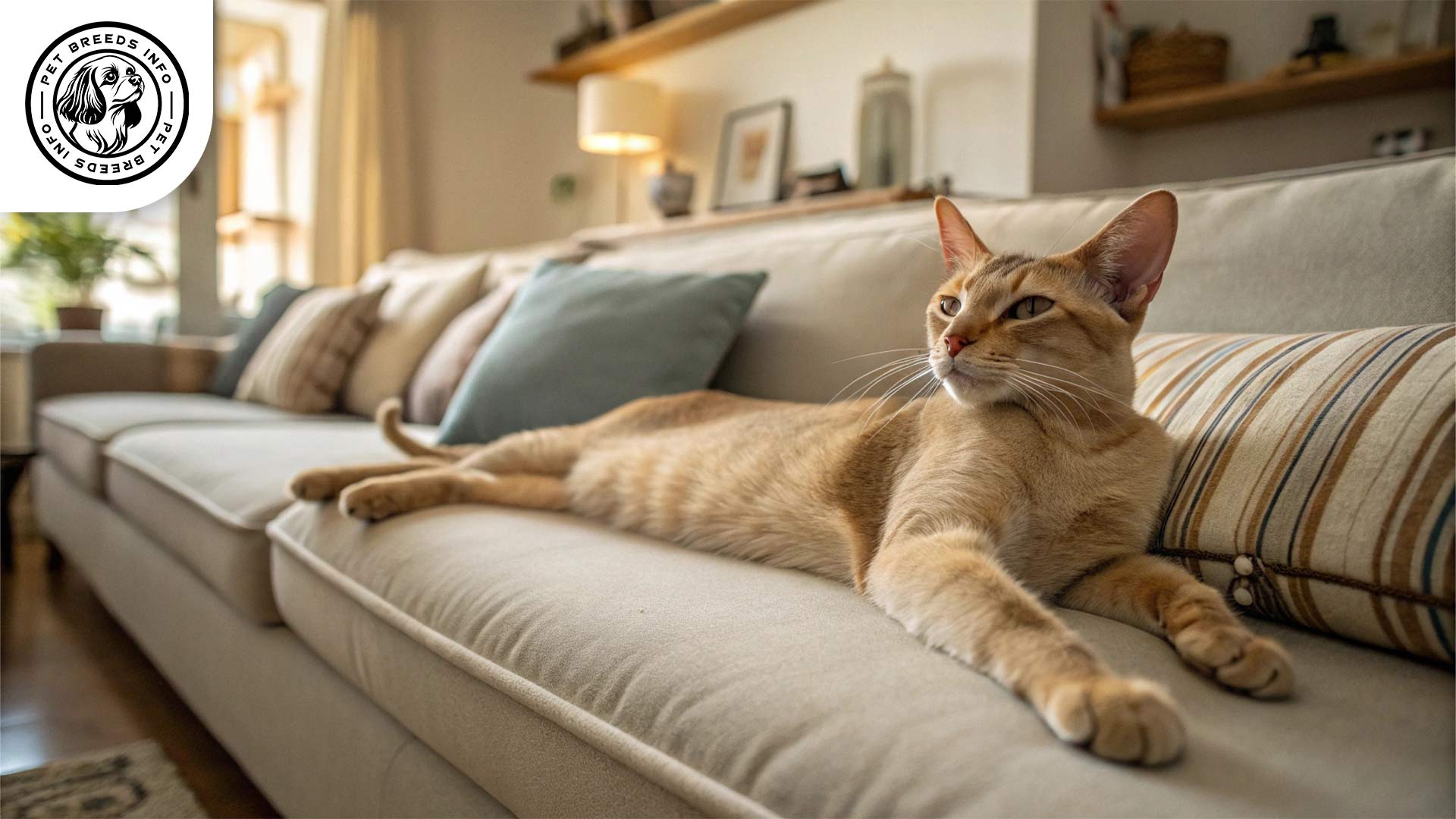The Abyssinian Cat Breed: Size, Health, Price, Personality
General Introduction of the Breed
The Abyssinian cat, known as “Aby” for short, is one of the oldest and most cherished cat breeds. The breed is believed to have origins in Ethiopia (formerly Abyssinia), from which it gets its name. Although its precise ancestry remains uncertain, the Abyssinian gained significant popularity in England during the 19th century and has since spread worldwide.
The Abyssinian, or "Aby," is an old, intelligent, energetic, and social breed. They bond strongly, need stimulation, and have minimal grooming needs. Good for active owners.Quick Overview
Affectionate - 85%
Independent - 60%
Intelligent - 95%
Sociable - 90%
Vocal - 50%
Shedding - 30%
Energetic - 90%
71%
100
| Common Name | Abyssinian cat, Aby |
| Scientific Name | Not explicitly mentioned in the text. |
| Origin | Believed to be Ethiopia (formerly Abyssinia). |
| Size | Medium-sized (Males: 8-12 lbs, Females: 6-9 lbs) |
| Lifespan | 12 to 15 years |
| Talking Ability | Not explicitly mentioned, but they are described as enjoying being part of the household and social. |
| Colors | Ruddy, red, blue, and fawn (warm shades). |
| Noise Level | Not explicitly mentioned. |
| Social Behavior | Friendly towards humans and other pets if properly introduced. Form strong bonds with owners. |
Table of Contents
Physical Characteristics
Abyssinians are medium-sized cats with a sleek, muscular build. Males typically weigh between 8 to 12 pounds, while females range from 6 to 9 pounds. They have a short, fine coat that comes in various warm shades, including ruddy, red, blue, and fawn.
The breed’s almond-shaped eyes are expressive and usually found in shades of green, gold, or amber. Abyssinians have large, pointed ears that sit upright, giving them a highly alert appearance. Their long, tapered tails add to their elegant and athletic look. A distinctive feature of the breed is its unique “ticked” coat pattern, where each hair has multiple color bands.
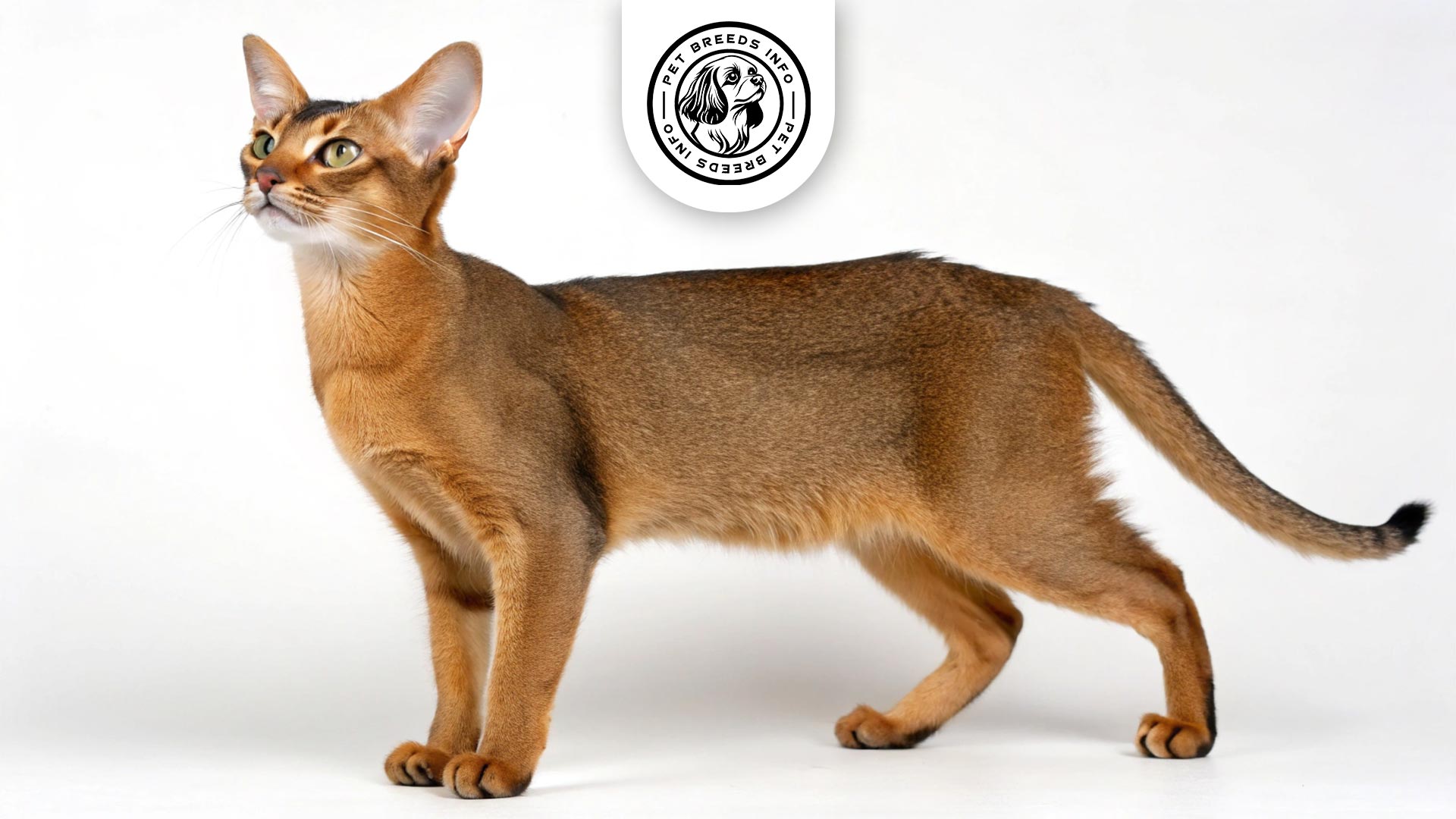
Personality and Temperament
Abyssinians are known for their high intelligence and enthusiasm for learning. They possess an energetic and playful nature, requiring plenty of stimulation. These cats form strong bonds with their owners and enjoy being an integral part of the household.
They are friendly towards humans, including children, and get along well with other pets if properly introduced. Abyssinians have a hunting instinct, making them exceptionally playful. They are also sensitive to changes in their environment and thrive in homes that provide consistency and attention.
Read More: California Spangled Cat
Care and Maintenance Requirements
This breed requires daily mental and physical stimulation. Interactive toys, climbing structures, and playtime are essential to keeping them happy. Due to their moderate size, Abyssinians adapt well to apartments but benefit from space to explore.
Grooming needs are minimal due to their short coat. Weekly brushing helps reduce shedding and promotes a healthy shine. These cats are more sensitive to extreme temperatures, so maintaining a comfortable indoor climate is beneficial. Regular hygiene practices, including nail trimming, ear cleaning, and dental care, are necessary for overall health.
Diet and Nutrition
Abyssinians thrive on a high-protein diet, consisting of either high-quality dry or wet food. Raw or natural diets can also be beneficial but should be introduced under veterinary guidance. It is crucial to avoid foods containing excessive fillers, artificial preservatives, and dairy products.
Portion control is important to prevent obesity, with feeding divided into two or three meals per day depending on your cat’s activity level and age.
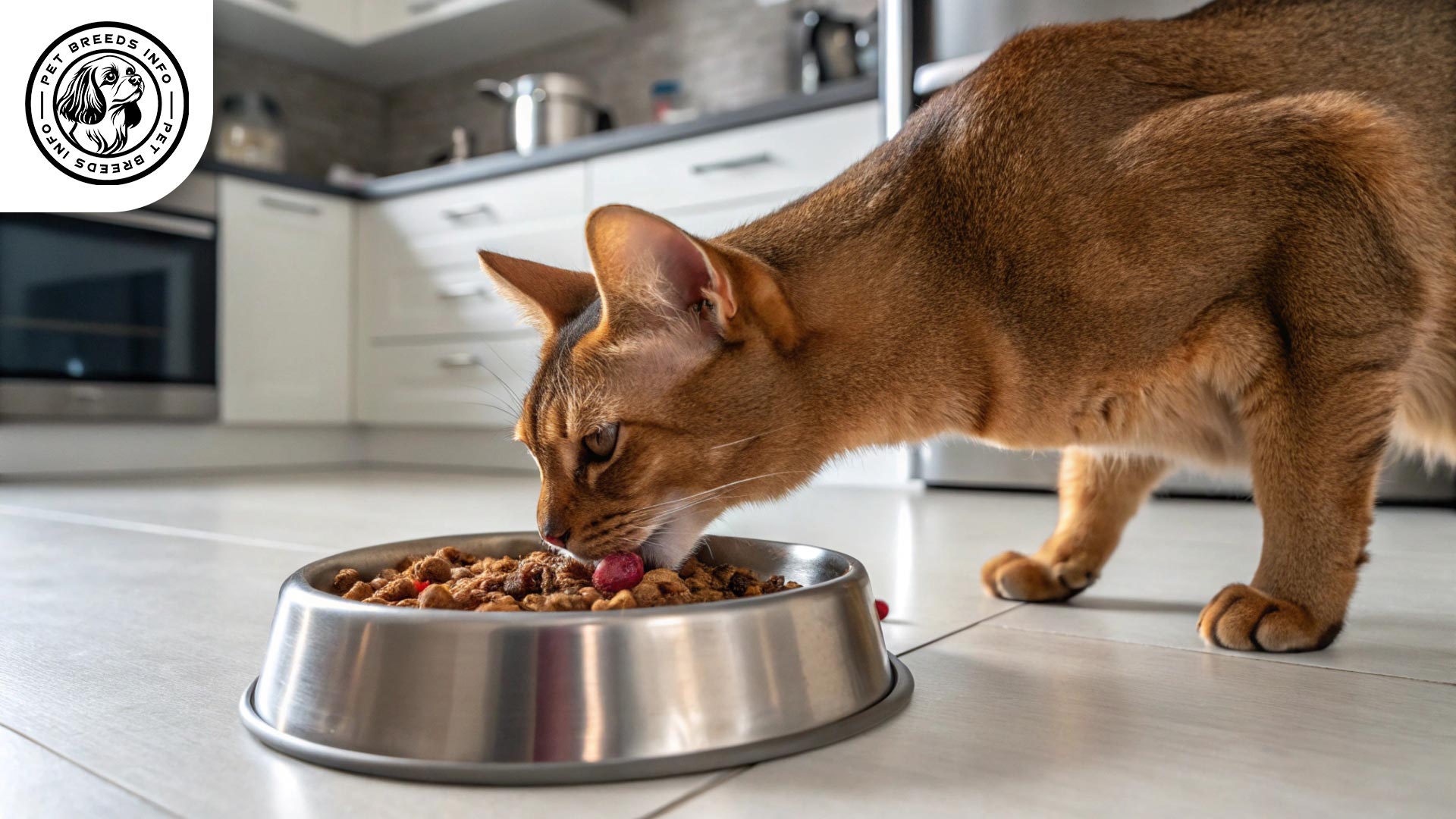
Health and Common Medical Issues
Abyssinians are generally healthy but predisposed to certain genetic conditions. Common health concerns include progressive retinal atrophy (PRA), renal amyloidosis, and periodontal disease. Regular veterinary check-ups help detect early symptoms of these conditions.
They typically have a lifespan of 12 to 15 years. Routine vaccinations, deworming, and preventive care are essential for maintaining their health.
Read More: Agean Cat
Training and Behavior Management
Abyssinians are highly trainable due to their intelligence and curiosity. They quickly learn tricks, commands, and even how to walk on a leash. Early socialization and positive reinforcement techniques work best for shaping their behavior.
Interactive play and puzzle toys help prevent behavioral issues by keeping them mentally engaged. Consistent training methods ensure they develop good habits early in life.
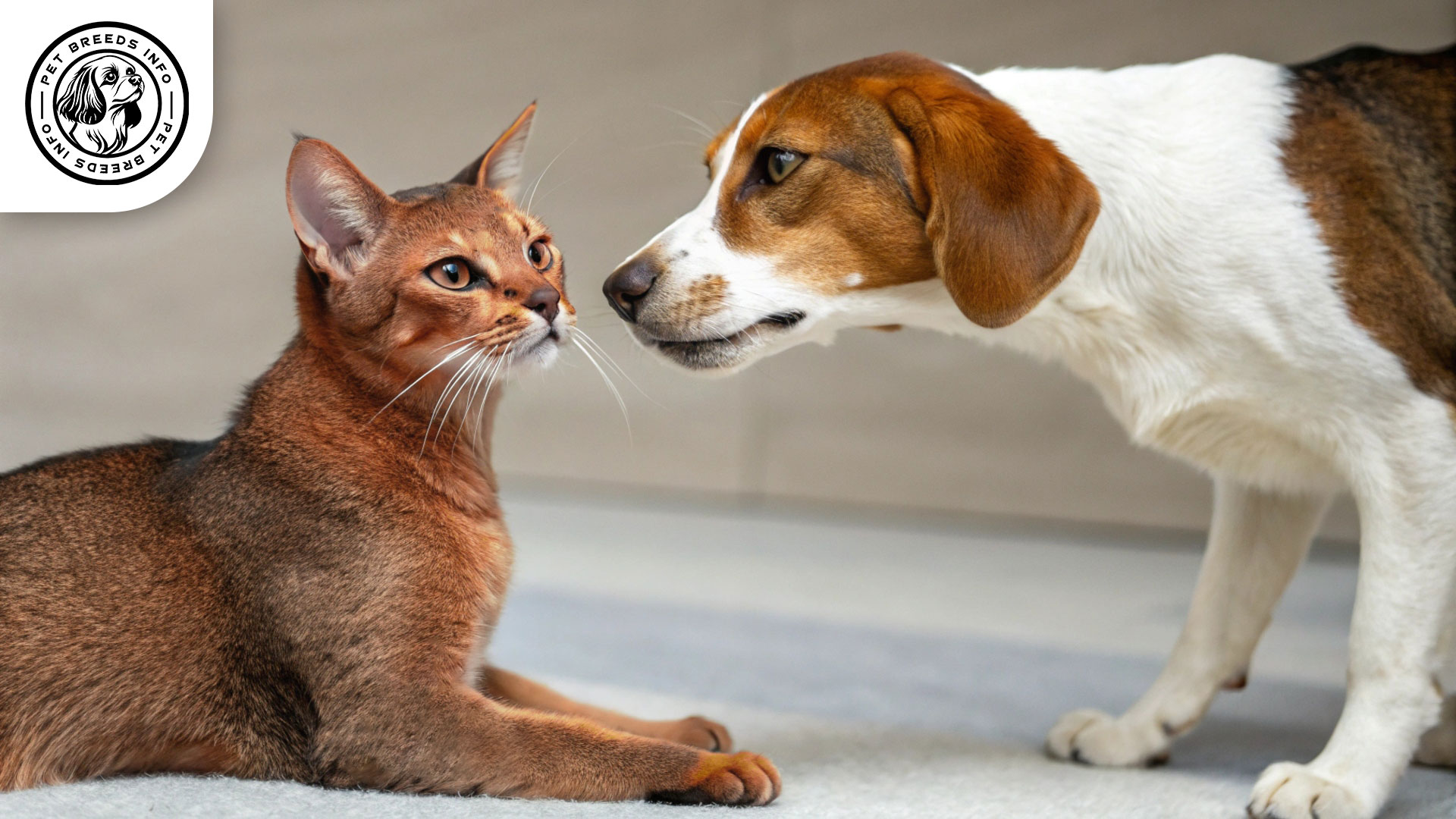
Interaction with Other Animals and Humans
These cats develop strong bonds with family members and enjoy playing with children. They are social and typically friendly with other pets, especially if they are raised together from a young age.
Abyssinians make great companions for individuals and families alike. They are not overly independent and prefer social interaction, making them ideal for owners who can devote time to their companionship.
Price and Availability
The cost of purchasing an Abyssinian cat from a breeder typically ranges between $800 and $2,500, depending on lineage, pedigree, and breeder reputation. It is essential to choose ethical breeders who follow responsible breeding practices.
Adopting an Abyssinian from a rescue organization or shelter can be a more affordable and ethical option. Always prioritize reputable adoption centers or breeders who prioritize health and well-being.
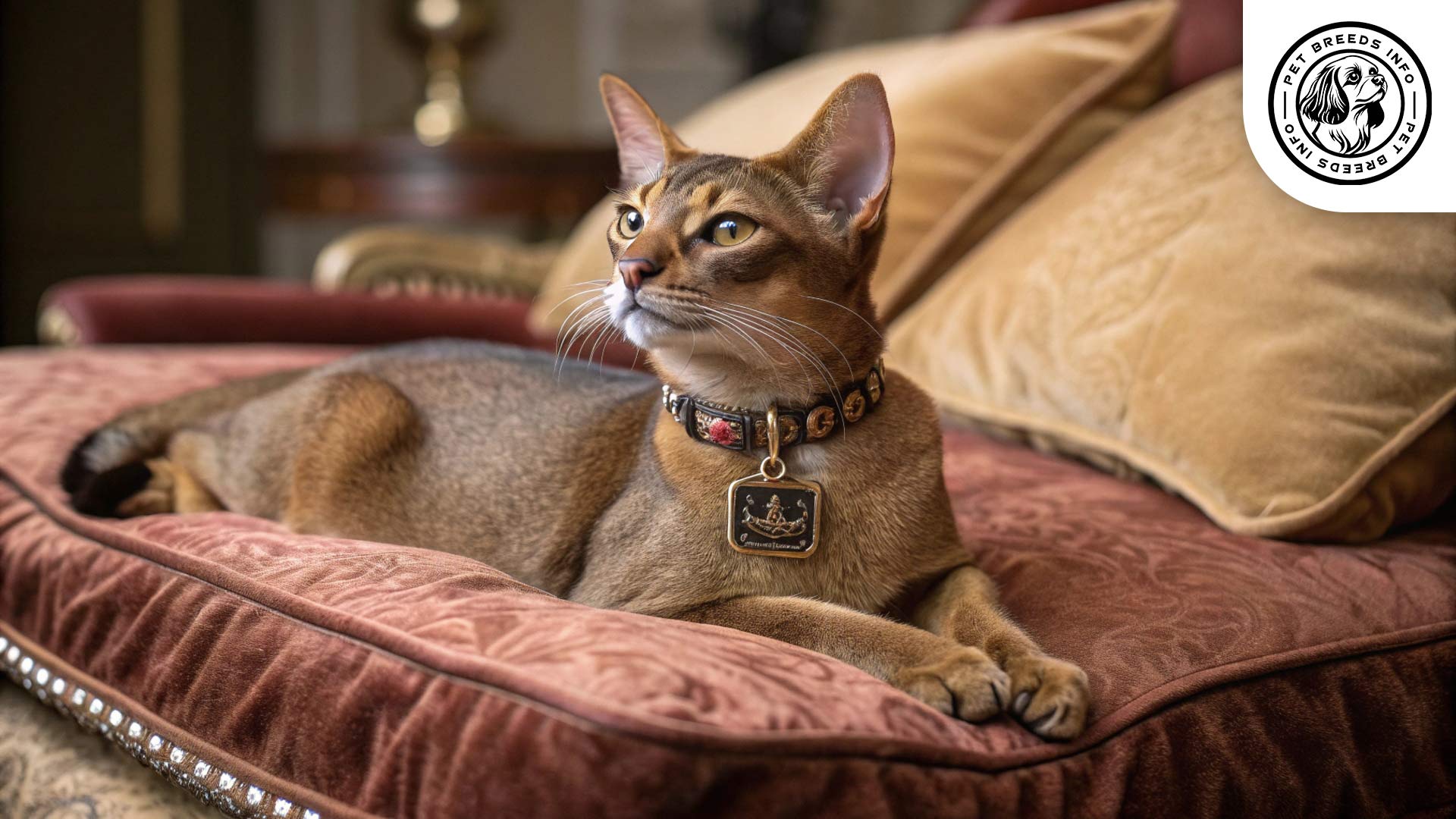
Conclusion and Final Thoughts
The Abyssinian cat is an excellent choice for owners seeking an active, intelligent, and affectionate companion. They require engagement and stimulation, making them best suited for individuals or families who can provide plenty of interaction.
With their playful and social nature, Abyssinians thrive in environments where they receive attention and mental stimulation. Prospective owners should consider their energetic needs and commitment to regular care before bringing one into their home.
Read More: German Rex Cat
FAQ
Are Abyssinians high-maintenance pets?
While they’re low-maintenance in grooming (weekly brushing suffices), they demand mental and physical stimulation. Daily playtime, puzzle toys, and climbing structures are essential to keep their active minds and bodies engaged.
Do Abyssinians get along with children and other pets?
Yes! They’re social butterflies and thrive in households with kids, dogs, or other cats especially if introduced early. Their playful, curious nature makes them great companions for interactive families.
What is the typical lifespan of an Abyssinian cat?
They typically have a lifespan of 12 to 15 years.
What is a distinctive coat feature of Abyssinians?
Their unique “ticked” coat pattern where each hair has multiple color bands.
Do Abyssinians require a lot of activity?
Yes, they’re energetic and need daily play and stimulation.
